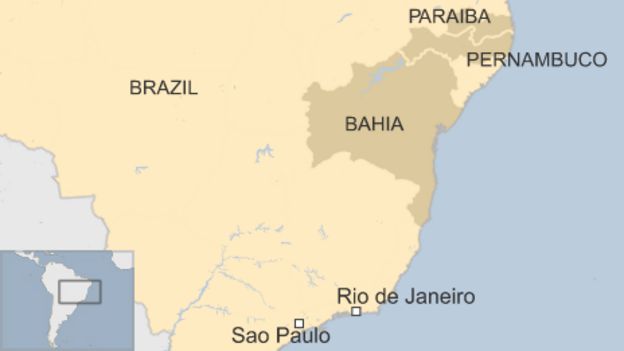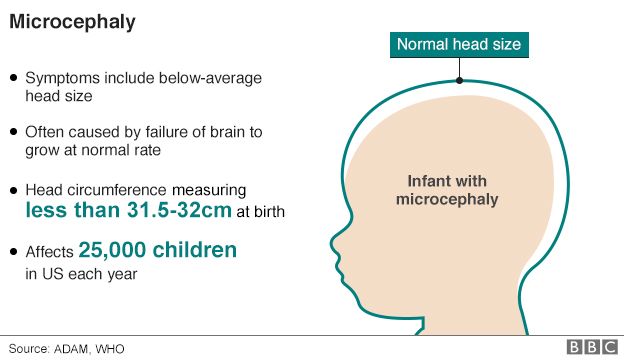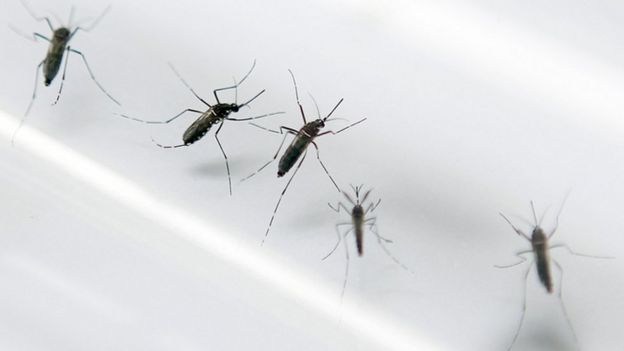What is the Zika virus and why is it spreading across South America?
In the United States, the Gulf Coast, especially the Texas Gulf Coast, is vulnerable to the threat of arboviruses – viruses transmitted by insects. A major reason is the warm and moist Gulf Coast climate that favors survival and overwintering of mosquitoes.
In the United States, the Gulf Coast, especially the Texas Gulf Coast, is vulnerable to the threat of arboviruses – viruses transmitted by insects. A major reason is the warm and moist Gulf Coast climate that favors survival and overwintering of mosquitoes.
Houston and Harris County for instance, are home to two major mosquito species – Aedes aegypti andAedes albopictus – that can transmit several arboviruses such as dengue, yellow fever, and chikungunya virus. Research led by Dr. Kristy O. Murray provided strong evidence
that dengue emerged in Houston between 2003 and 2005. Our region is also home to
the Culex mosquitoes that transmit West Nile virus infection. These arbovirus infections have important health and economic consequences for the region.
the Culex mosquitoes that transmit West Nile virus infection. These arbovirus infections have important health and economic consequences for the region.
that dengue emerged in Houston between 2003 and 2005. Our region is also home to the Culex mosquitoes that transmit West Nile virus infection. These arbovirus infections have important health and economic consequences for the region.
Houston and Harris County for instance, are home to two major mosquito species – Aedes aegypti andAedes albopictus – that can transmit several arboviruses such as dengue, yellow fever, and chikungunya virus. Research led by Dr. Kristy O. Murray provided strong evidence that dengue emerged in Houston between 2003 and 2005. Our region is also home to the Culex mosquitoes that transmit West Nile virus infection. These arbovirus infections have important health and economic consequences for the region.
The latest threat to our region could be a new virus known as the Zika virus that recently emerged in Latin America. The first case occurred in 2014 on Easter Island, Chile. in May of this year the first cases in Brazil were observed to occur in association with local transmission of the virus. The Brazilian state of Bahia, for instance, was noted to be particularly hard hit, as were several states in the nearby northeastern region.
This month the Pan American Health Organization, the regional organization of the World Health Organization, issued an alert regarding Zika virus transmission in Brazil, Chile (on Easter Island), Colombia, El Salvador, Guatemala, Mexico, Paraguay, Suriname, and Venezuela.
Of particular concern is the link noted between Zika virus and neurological illness, but especially a possible role in congenital infection. Newborn babies born to mothers infected with Zika virus have been noted to possibly be at increased risk of congenital birth defects including a condition known as microcephaly. Microcephaly is a serious condition associated with below normal intelligence and other central nervous system findings.
What does this mean for Texas and the Gulf Coast? To our knowledge, Zika virus has not yet appeared in our area, but we know we are vulnerable to arbovirus infections. We therefore need to be cognizant of the possibility of Zika virus gaining a foothold in our area in the future.
The summer and fall months are a particularly troubling time for mosquitoes and arbovirus infections. Therefore we at our National School of Tropical Medicine at Baylor College of Medicine hope to conduct future studies on the potential risk of Zika in Harris County, Texas and the Gulf Coast.
The Sabin Vaccine Institute and Texas Children’s Hospital Center for Vaccine Development develop vaccines for neglected diseases, but has not yet started a Zika project. However, this too could be an area of future work.
As we learn more about Zika virus and its rise in the Americas, we hope to keep you informed on our progress and tracking of this important emerging infection.
Brazil Zika outbreak: More babies born with birth defects
Brazil says the number of babies born with suspected microcephaly or abnormally small heads since October has now reached nearly 4,000.
In the worst affected area, about 1% of newborns have suspected microcephaly.
The Brazilian authorities believe the increase is caused by an outbreak of Zika virus. Just 150 babies were born with microcephaly in 2014.
The brain condition can be deadly or cause intellectual disability and developmental delays.
Colombia's health minister has advised women there to delay pregnancy.
Brazil's health ministry says there have been 3,893 suspected cases of microcephaly since October, when the authorities first noticed a surge, up from 3,500 in last week's report.
The link with Zika has not been confirmed, but a small number of babies who died had the virus in their brain and no other explanation for the surge in microcephaly has been suggested.
Zika is generally mild and only causes symptoms in one in five people. It is spread by the Aedes aegypti mosquito, which also spreads dengue and chikungunya.
Brazil is experiencing the largest known outbreak of Zika.
President Dilma Rousseff, visiting Recife in the worst-affected north-east of the country, said Brazilians needed to engage in the fight against the virus.
"Until we discover a vaccine, we will need to rely on the population to help us remove the conditions under which the mosquito reproduces," she said.
"In the meantime we need to provide all the assistance the children and their families require."
 AP
AP
Forty-nine babies with suspected microcephaly have died, Brazil's health ministry says. In five of these cases an infection with Zika virus was found.
The Fiocruz research institute in Brazil says it has detected the virus in the placenta of a woman who miscarried in the first trimester of pregnancy - a step closer to establishing a clear link between the virus and the deformities affecting babies and foetuses.

Brazil's health ministry says that 90% of notified suspected cases of microcephaly are in the north-east - and 6% in the south-east, an area which includes Rio de Janeiro and Sao Paulo.
Rio de Janeiro is due to host the Olympics in August. The country is expecting 10,500 international athletes and many more spectators to attend.
The worst affected states in the north-east - the poorest part of Brazil - are Paraiba, Pernambuco and Bahia.
In Paraiba, the health ministry says that the number of babies born with suspected microcephaly works out as 114 per 10,000 live births - or more than 1 in 100 of all newborns.
Last week, Brazilian Health Minister Marcelo Castro said a new testing kit was being developed to identify quickly the presence of any of the three viruses spread by the mosquito concerned - dengue, chikungunya and Zika.
He also announced extra funds to speed up the development of a vaccine for Zika.
At the moment the only way to fight Zika is to clear stagnant water where mosquitoes breed, and to protect against mosquito bites.

There has been a sharp rise in the number of cases of Zika in several other Latin American countries.
In Colombia, more than 13,500 cases have been reported.
"We are the second country [in Latin America] after Brazil in the number of reported cases," said Health Minister Alejandro Gaviria.
He has advised women in the country not to get pregnant for the rest of the outbreak which, he said, could last until July.
In Bolivia, the authorities have reported the first case of a pregnant woman diagnosed with Zika.
"She has not travelled outside the country," Joaquin Monasterio, health chief for the eastern department of Santa Cruz, told AFP news agency. "This is a home-grown case."
 AFP
AFP
The US Centers for Disease Control and Prevention issued an alert last Fridayadvising pregnant women to consider postponing travel to Brazil and other Latin American and Caribbean countries where outbreaks of Zika have been registered.
The travel alert applies to Brazil, Colombia, El Salvador, French Guiana, Guatemala, Haiti, Honduras, Martinique, Mexico, Panama, Paraguay, Suriname, Venezuela and Puerto Rico.



Every blog tells something. This blog is actually fantastic and I’ve got enough things while reading this post. what is the best weight loss diet
ReplyDeleteMaintain the best health for food be free with :- best diet for weight loss and body fitness food tips
ReplyDeleteGreat posting about Zika virus: More babies born with birth defects and Brain Damage "Watch The videos".........................
ReplyDeleteDesi Health Tips